
Pigeon River Restoration Project
The Pigeon River that our members and guests enjoy today is the result of a lengthy, two-phase process that began in 2014, under the direction of a steering committee facilitated by Huron Pines, with drawdown of the former Lansing Club (Song of the Morning) pond, removal of a hydroelectric dam and construction of the timber frame bridge that now crosses the river just east of the Wheelhouse on Retreat Road.
The actual restoration of the river, phase two, began in July 2021 after a lengthy planning and funding period and was completed in November 2021. The project addressed the lingering impact of over 100 years of damming the river, which occurred from the late 1800s through 2014. Multiple “braided” channels upstream of our property were combined into a single channel, and the river was re-meandered to flow more directly under the new bridge. Guests who joined us in the summer and fall of 2021 were able to witness construction, which included large excavating equipment, and huge mounds of rich organic humus and sand that was removed from the river!
The aim of the project was to reconnect the floodplain by pulling back decades of accumulated organic material, stabilize the river and surrounding riverbank, and create and protect wetland areas that support migratory birds and other wildlife. The result was improved in-stream and riverbank habitats while educating the public on the benefits of Natural Channel Design methods. Success!
Now, when you visit Song of the Morning, you can enjoy the expansive view of the Pigeon River with its alternating active riffles and quiet pools; the native flowers, shrubs and trees planted to secure the river banks and restore the surrounding riparian meadow; and two oxbow ponds that provide both habitat for birds and other wildlife and still water elements appreciated by our members.
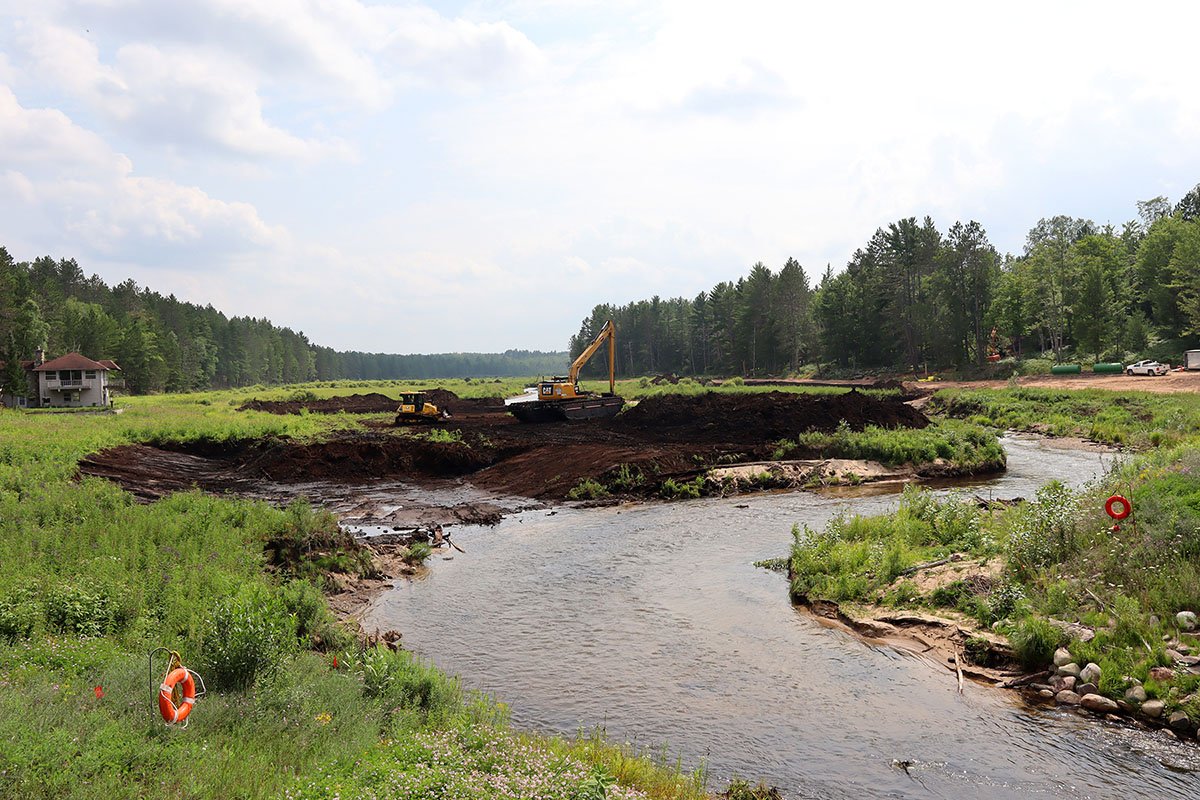
July 2021
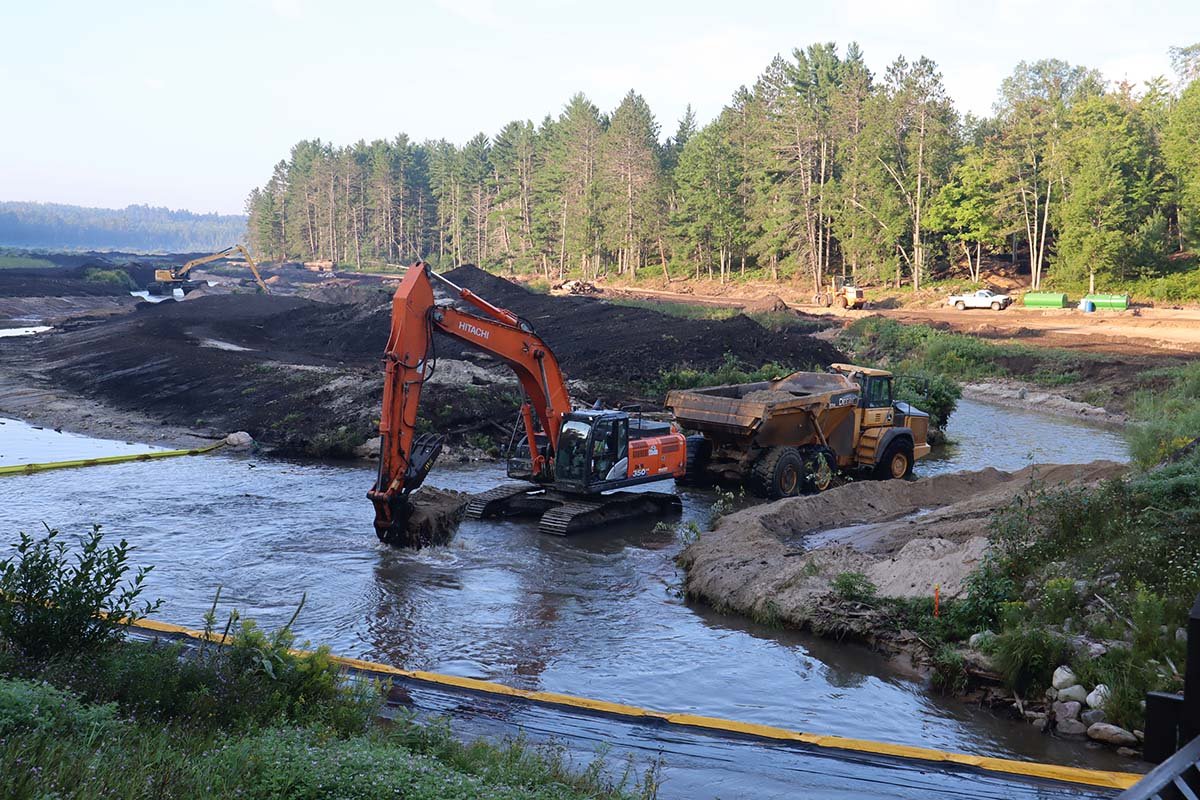
August 2021
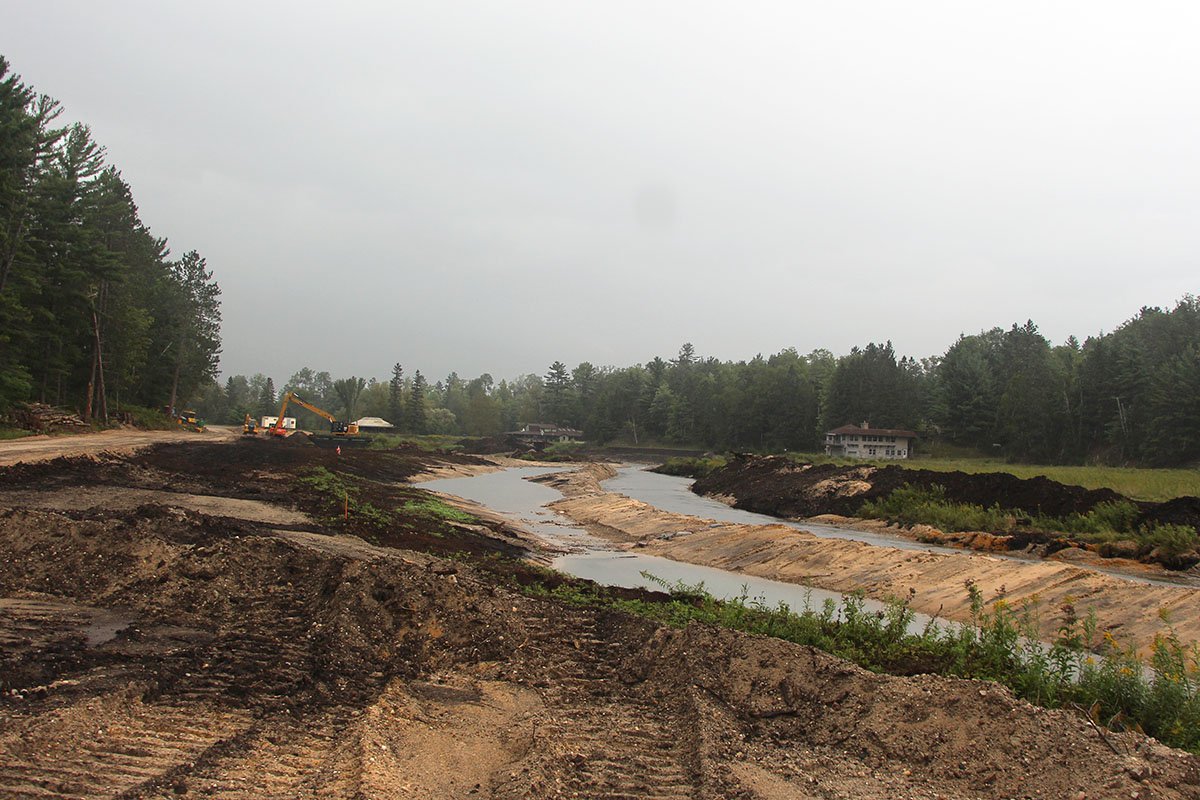
August 2021

August 2021
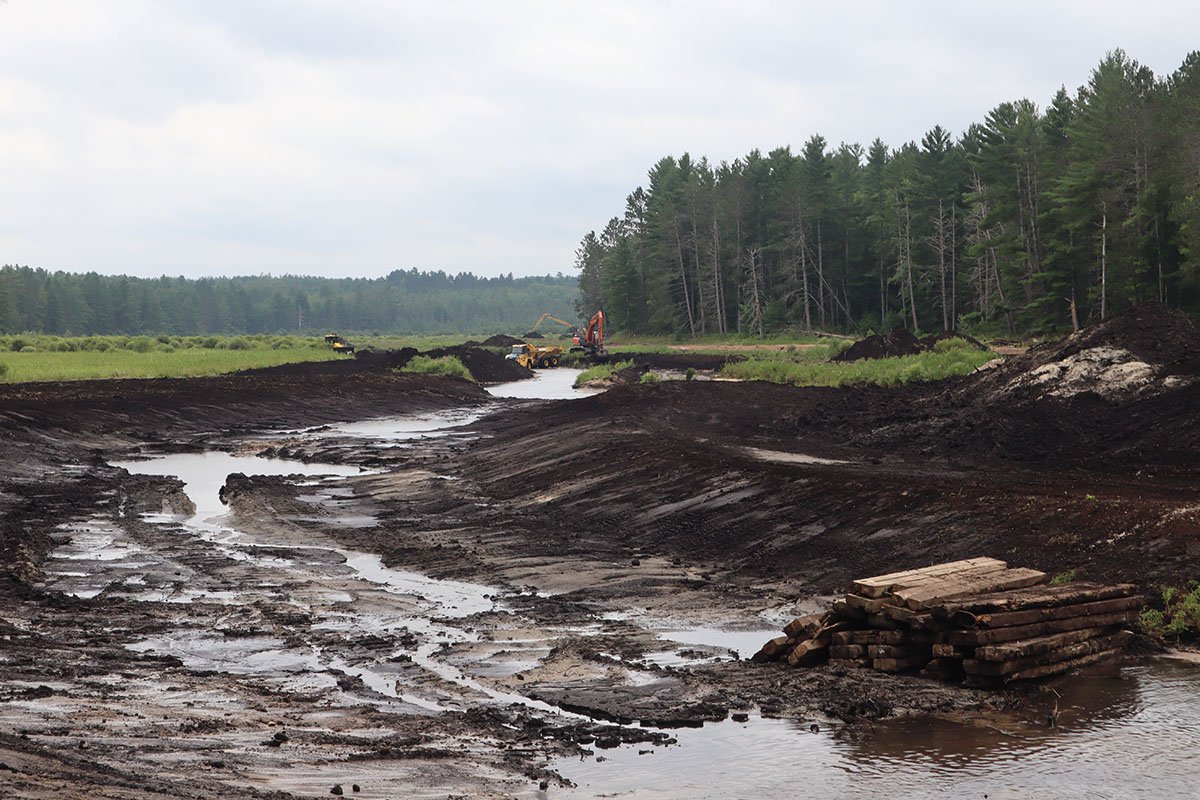
August 2021

November 2021

November 2021

May 2022

July 2022

July 2023
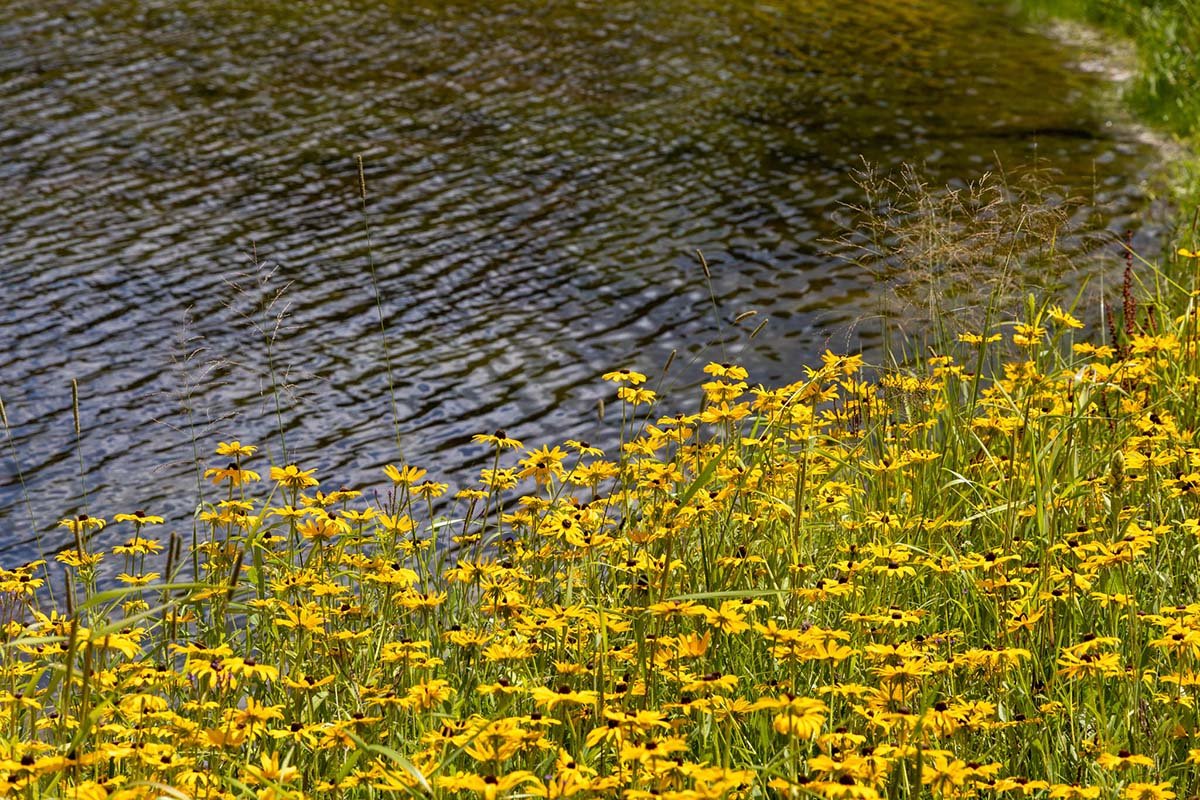
July 2023
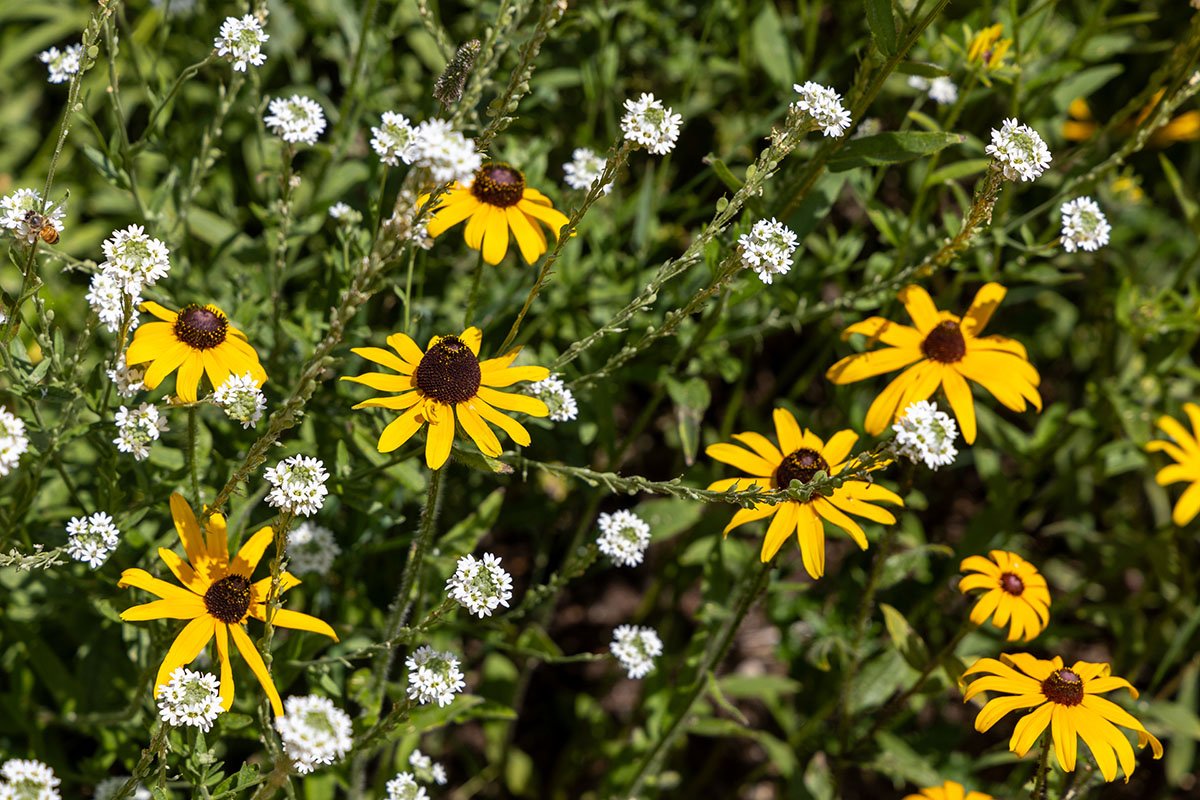
July 2023
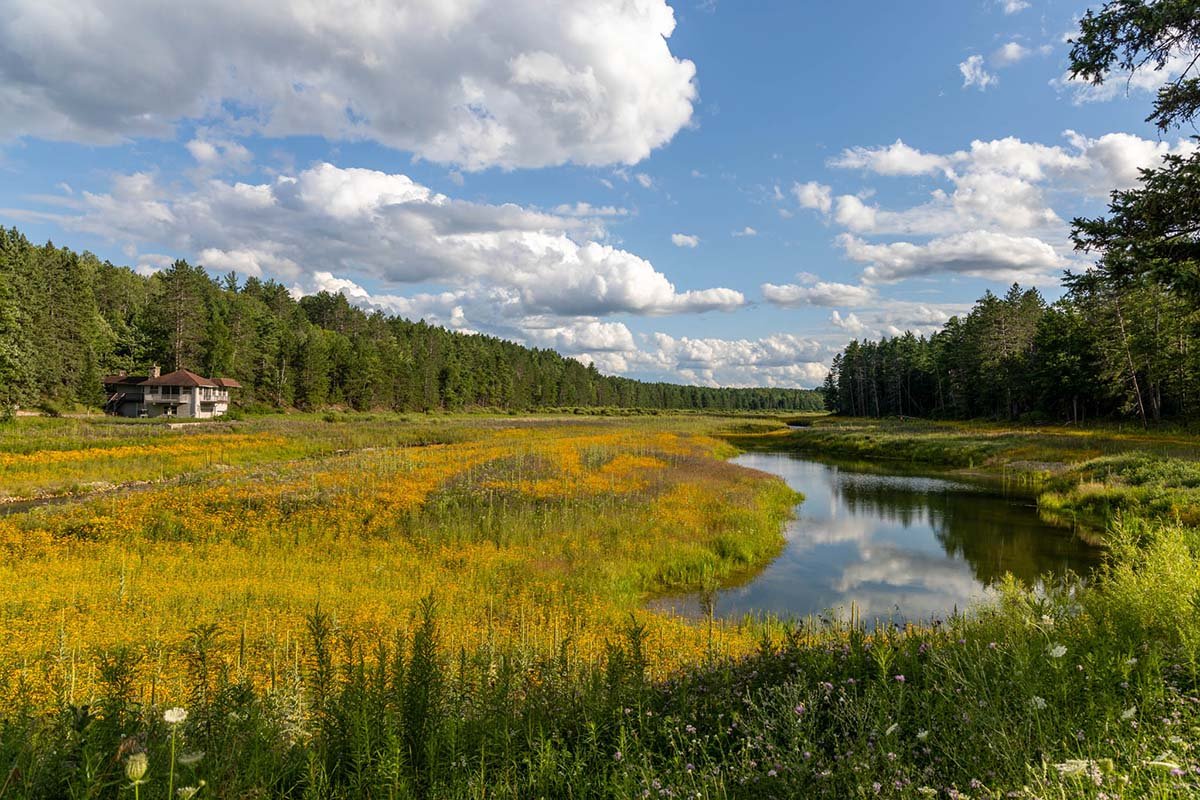
July 2023
Natural Channel Design
The restoration of the Pigeon River was a demonstration project for streambed restoration professionals throughout the state of Michigan. Its design was based on survey data gathered to identify characteristics of the river’s natural hydrology in unaffected stretches upstream and below the affected areas. By mimicking the natural conditions of the river, the project aimed to mitigate impacts of the river’s having been dammed for over a century.
Our gratitude:
Thank you to the many who supported Golden Lotus and made this project possible: Michigan Department of Natural Resources (DNR) and the numerous state, national and private funders – too many to include here – without whose significant support this project could not have taken place; Stantec Consulting, which provided engineering and project design management; M.J. VanDamme, the contractor whose love for the project and commitment to excellence made this a remarkable experience; Joe Jarecki of Pigeon River Country Association (PRCA) and his wife Judi, whose onsite monitoring of the river and personal support were deeply felt and appreciated; to Rob Myllyoja, formerly of Stantec Consulting, who’s initial vision for this project catalyzed the many efforts that brought this project to fruition – and to God and gurus through whom all things are possible.
